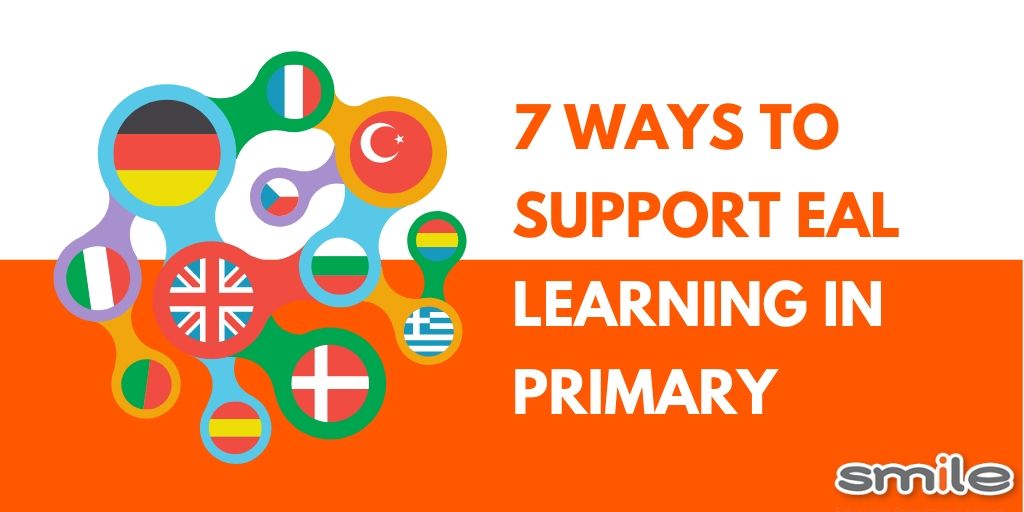Blog
Are you a supply teacher or teaching assistant looking for some help and advice? If so, you are in the right place. Our blogs offer tips and tricks on everything from classroom management to interview tips and support, along with day in the life case studies from real supply teachers, ECTs and cover supervisors. They also give you an insight into what working for Smile is like, the ways which we support local communities and charities and the training and events that we offer.
For more good stuff like this, follow us on social media - you can find us on Facebook, Instagram, Twitter and LinkedIn. Or pick up the phone and give us a call.
As a teacher, it is important to sometimes place yourself in the students of your students. For example, imagine you are given a task to complete, only to find that it’s been written in Egyptian hieroglyphics that you cannot understand. It’s likely that your confusion would quickly turn to frustration and then to disinterest. Not a nice feeling, right?
Well, this is how students with English as an additional language may feel. Therefore it is important that these children, and their feelings, are taken into consideration when teaching a lesson.
Luckily we have some suggestions which will help to make primary EAL pupils feel included.
1. Language passports
Language passports can be extremely useful in developing the language of those who speak little or no English. For anyone not familiar with a language passport, it’s a simple teaching tool which involves pupils collecting words and phrases across the curriculum with translations into their first language.
We’d advise focusing on a handful of words or phrases per week to help build up their vocabulary over time.
2. Focus on where the child excels
Children learn in different ways and while some might show willing in speaking English in the classroom, they may shy away from writing and vice versa. Be sure to praise students for what they are doing well, rather than focusing on the areas which they aren’t doing so well at. The extra encouragement can make all the difference!
3. Make sure learning is reciprocal
Learning can, and should, go both ways. Learners from outside the UK often have a rich cultural heritage which can present a great learning opportunity to the other students too. For example, you could learn about the child’s country’s history, cuisine or art. Often the linking of their language and culture, combined with the opportunity to teach their classmates a thing or two, helps to banish the fear of failure.
4. Communicate with parents
As always communication is key. Make sure to make the time to speak with parents and inform them of how the child is getting on. Once you have built a rapport with them, you can even suggest things they can do at home to help support their learning.
Parents too may also relish the opportunity to become a part of the school community so invite them in! When chatting to them, make sure to personally invite them to learning workshops or events which are happening at the school. Making people feel included is the key to success.
5. Enable other ways to show understanding
Get inventive! Showing learning doesn’t all have to be about writing. There are lots of ways to show understanding that don’t involve picking up a pen. For example, oral presentations and arts and crafts can be really great ways of showing understanding without having to rely on written English. Plus they are typically more fun and engaging so likely to be enjoyed by the students more!
6. Supplement lessons with images
Visuals can be a crucial tool when supporting children with EAL as they help them to make sense of the new information that they have learned. But be sure that you also provide extra support where needed to ensure that their language skills meet the demands of the curriculum.
7. Don’t succumb to poor practice
Don’t be afraid. Embrace everyone’s differences! It’s okay if children wish to talk to each other in their own language or that they want to socialise with one another. It won’t prevent them from learning, in fact, it’s likely to have the opposite effect as they are likely to feel more accepted, comfortable and confident as a result.
If you are interested in working with EAL children, get in touch or submit your CV today.
Add a comment:
Blog Categories
Latest Blogs
Celebrating Volunteers' Week at Smile Education
Smile Education Begins Strategic Recruitment Partnership with Bordesley Multi Academy Trust
Netflix’s Adolescence: What Safeguarding Lessons Can We Learn?
From Graduate to Director: Kash’s Career at Smile Education
A Complete Guide to SEN Terms and Phrases for Teachers in 2025












